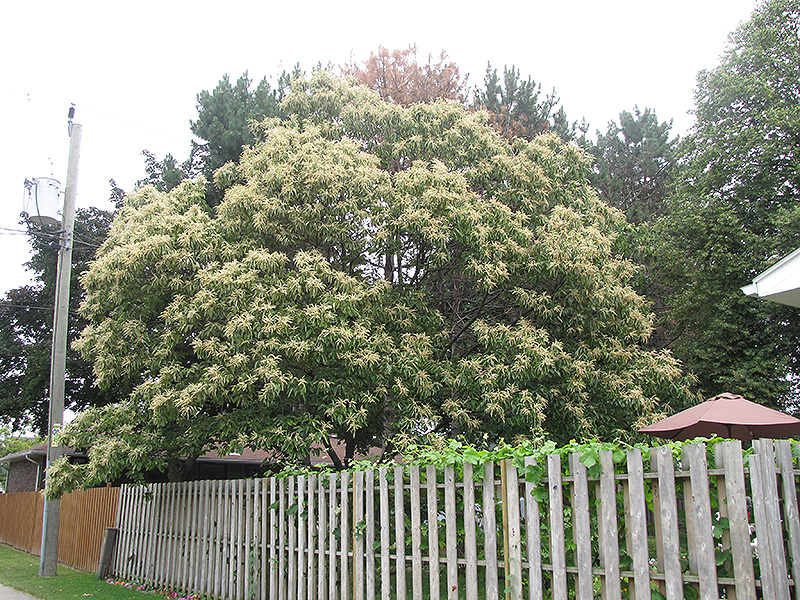PLANT FINDER
Height: 50 feet
Spread: 40 feet
Sunlight:
![]()
Hardiness Zone: 5a
Description:
A possible replacement for the American chestnut which has been devastated by blight, this low-branched shrubby tree produces edible nuts in fall, excellent for roasting; immune to the chestnut blight; nuts can be messy in fall
Edible Qualities
Chinese Chestnut is a large tree that is commonly grown for its edible qualities. It produces brown nuts which are usually ready for picking from early to mid fall. The nuts have a sweet taste.
The nuts are most often used in the following ways:
- Fresh Eating
- Cooking
Features & Attributes
Chinese Chestnut has dark green deciduous foliage which emerges red in spring on a tree with a round habit of growth. The pointy leaves turn an outstanding harvest gold in the fall. It produces brown nuts in mid fall. The fruit can be messy if allowed to drop on the lawn or walkways, and may require occasional clean-up.
This is a deciduous tree with a more or less rounded form. Its average texture blends into the landscape, but can be balanced by one or two finer or coarser trees or shrubs for an effective composition. This is a high maintenance plant that will require regular care and upkeep, and is best pruned in late winter once the threat of extreme cold has passed. It is a good choice for attracting squirrels to your yard, but is not particularly attractive to deer who tend to leave it alone in favor of tastier treats. Gardeners should be aware of the following characteristic(s) that may warrant special consideration;
- Messy
Aside from its primary use as an edible, Chinese Chestnut is sutiable for the following landscape applications;
- Shade
- Orchard/Edible Landscaping
Planting & Growing
Chinese Chestnut will grow to be about 50 feet tall at maturity, with a spread of 40 feet. It has a low canopy with a typical clearance of 4 feet from the ground, and should not be planted underneath power lines. It grows at a medium rate, and under ideal conditions can be expected to live for 80 years or more.
This plant is typically grown in a designated edibles garden. It should only be grown in full sunlight. It is very adaptable to both dry and moist locations, and should do just fine under average home landscape conditions. It is not particular as to soil type, but has a definite preference for acidic soils. It is highly tolerant of urban pollution and will even thrive in inner city environments. This species is not originally from North America.
A NetPS Plant Finder tool


